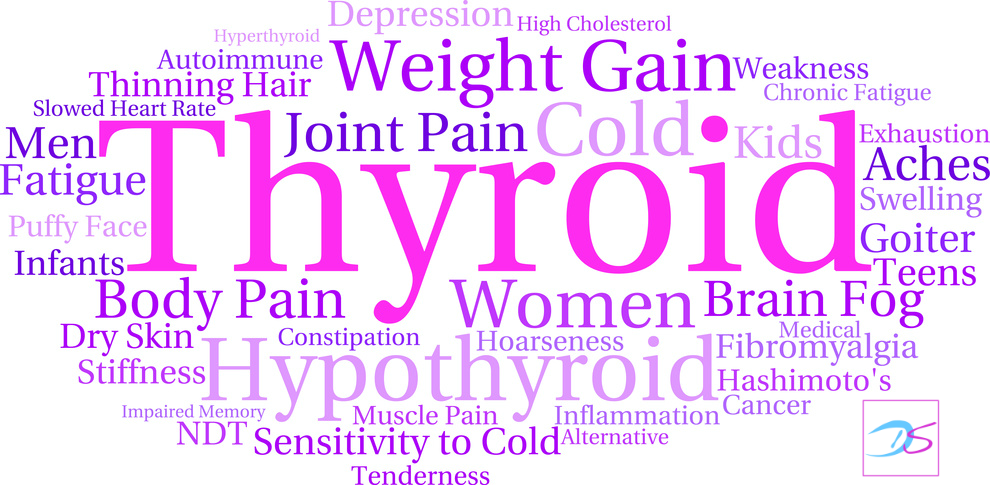Are you frustrated, disappointed or desperate because the medication that was supposed to help you is not making you feel better?
Was it feeling exhausted, overwhelmed and brain fogged that led you to having your thyroid tested? Or did you put on a lot of weight without any logical explanation or was it trying to lose weight without success that had your doctor investigate your metabolism? Maybe it was all of these issues and more that eventually led to the diagnosis of hypothyroidism. When you don’t feel like yourself anymore, a diagnosis can come as a great relief because now you know that it’s not your imagination, that you haven’t suddenly turned into a lazy person and maybe most importantly it opens up a door to getting better.
You’ve probably been prescribed a synthetic hormone to make up for the fact that your thyroid isn’t producing enough of it. Of course the goal of taking the medication was to make your symptoms disappear. For some women this works, unfortunately for many others it doesn’t. If you are still not feeling like yourself again despite taking thyroid medication, keep reading and find out why the little hormone pill may be failing you.
Hypothyroidism has many faces and standard thyroid testing may not always uncover the full story.
Since thyroid tests that are covered by the health insurance are limited, you may find that you have only been checked for levels of Thyroid Stimulating Hormone (TSH) and free T4. Having hypothyroid symptoms while having elevated TSH and a low free T4 generally leads to a prescription of thyroid hormone medication often without further investigation. The functional approach to any health issue is different; it looks for the root cause of the symptoms rather than treating the symptoms. So here is my question for you: Has anyone investigated why your TSH is high and your free T4 low?
TSH is generally elevated when the thyroid doesn’t produce enough T4 and one of the reasons for low T4 production can be an iodine deficiency. If this is the only issue, thyroid medication will usually get rid of the symptoms but may not be necessary. An optimal intake of iodine may resolve the issue without hormone medication. T4 is the main hormone our thyroid produces, however, it is mostly inactive and still needs to be converted into T3 for our cells to be able to fully benefit from it. This is where it gets delicate. A low free T3 level can show in hypothyroid symptoms but it’s most likely not a thyroid issue because very little T4 gets converted to T3 in the thyroid itself. The majority of this important conversion happens in the liver, the kidneys and the muscles. The body also needs sufficient selenium for the conversion process.
Now imagine that your body cannot sufficiently convert T4 to T3, then this might explain why your thyroid medication is not giving you the results you were hoping for. Synthetic thyroid medication typically contains T4 only. There are natural thyroid medications that contain T4 and T3 which can be of great benefit if a low conversion is the real problem. Discuss this with your doctor and if he or she has no experience with natural thyroid medication you can always ask for a referral to someone who does. It may take some persistence as not all countries are equally open to using natural thyroid hormone. If conversion is the issue, you may also want to investigate the health of your liver and your selenium levels. Maybe you are exposed to chemicals due to your work environment and your liver might have trouble detoxing sufficiently.
Another reason for not feeling better or only slightly feeling better despite taking thyroid medication could be that the hypothyroidism is caused by an autoimmune reaction with your thyroid being the target. The autoimmune disease leading to destruction of thyroid tissue is called Hashimoto’s thyroiditis. The break down of thyroid tissue can be a serious cause for the thyroid not being able to produce enough T4. However, in this case the thyroid is the target and not the primary reason for low T4 production. With Hashimoto’s thyroiditis thyroid hormone medication is generally necessary for the body to function properly, but it is not treating the root cause. There are various mechanisms that can trigger autoimmune reactions. Since about 70% of our immune system is located in our gut, healing the gut is a central part in addressing Hashimoto’s. Testing for Hashimoto’s generally starts with testing for thyroid peroxidase antibodies (TPO) and anti-thyroglobulin antibodies (Tg). However, negative antibody tests cannot rule out Hashimoto’s, in many cases it only shows up on ultrasound.
This may seem very complex, the message I would like you to take away is that the thyroid medication you are taking may not be enough to address the underlying issues. If you are still not feeling well, don’t give up. There are options and many women who have suffered have been able to recover and get their lives back. You can do that too!
If you would like to receive more self-empowering health tips, subscribe to my newsletter.


